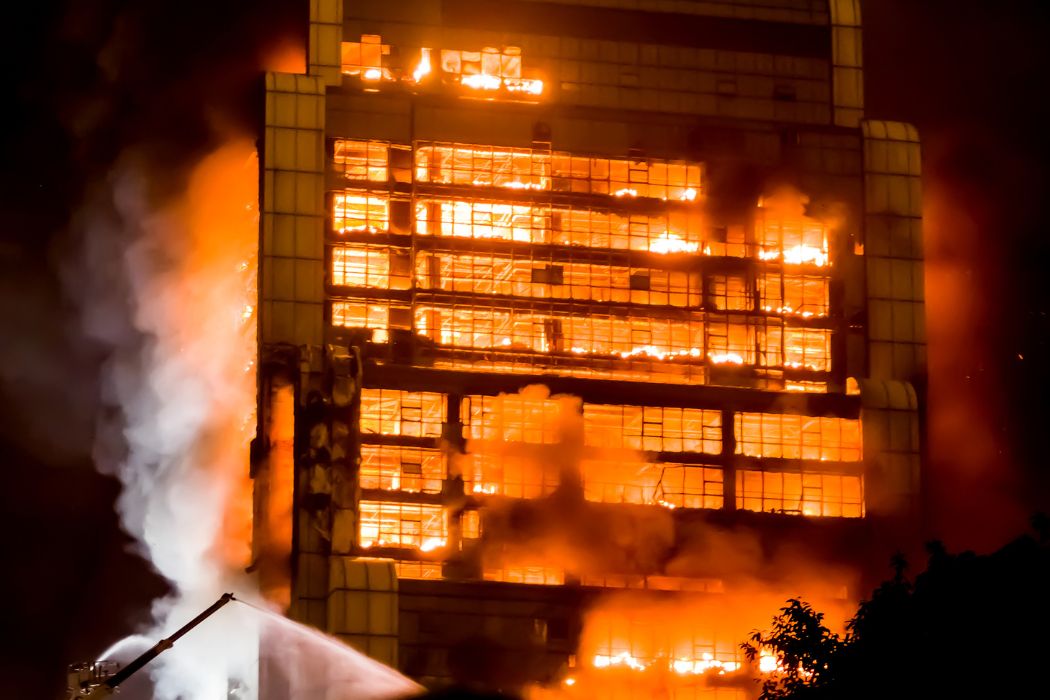In the wake of recent fire incidents in the UK, there is growing concern about the safety of buildings, particularly those constructed before modern fire regulations were established. The need for effective fire protection measures, especially Passive Fire Protection (PFP), has never been more urgent.
Passive Fire Protection acts as an essential safety barrier, containing fire and smoke, and providing valuable time for occupants to evacuate safely. Despite its critical role, many buildings remain vulnerable due to delays in remediation projects. This escalating risk underscores the necessity of addressing these issues swiftly to ensure that lives and properties are adequately protected.

Why remediation work is being delayed
One of the key reasons why buildings across the UK continue to lack adequate fire protection is the ongoing delay in remediation projects. With limited budgets, many local authorities and building owners struggle to prioritise fire safety improvements over other pressing concerns.
However, when it comes to fire protection, particularly PFP, the cost of inaction far outweighs the financial burden of timely upgrades. As buildings remain at risk, the potential for fire incidents grows, placing both residents and workers in harm’s way.
The escalating risk of fire hazards
The increased fire risks faced by many buildings, particularly high-rise structures and older residential blocks, cannot be ignored. Many of these buildings were constructed before modern fire safety regulations were in place, leaving them ill-equipped to deal with the rapid spread of fire and smoke.
The absence of proper Passive Fire Protection systems, such as cavity barrier systems, means that fires can spread quickly, increasing the risk of large-scale damage and loss of life. As these risks continue to escalate, it becomes increasingly clear that remediation work must be prioritised and completed as soon as possible.
Why Immediate action is essential
The longer that remediation projects are delayed, the greater the potential for disaster. Fire incidents serve as a stark reminder of how vulnerable certain buildings are when fire safety improvements are not implemented.
Passive Fire Protection systems are designed to prevent the spread of fire and smoke, containing the fire within its point of origin. This not only reduces damage to the building but, more importantly, gives residents the time they need to evacuate safely. With lives at stake, the need for swift and comprehensive remediation work cannot be overstated.
Overcoming barriers to fire safety
While funding challenges are a significant barrier to progress, solutions must be found to ensure that fire safety is not compromised. Collaboration between local authorities, property owners, and fire safety experts is essential to overcoming these obstacles.
Innovative funding models, government support, and streamlined processes can help accelerate remediation projects. By working together, stakeholders can ensure that the necessary upgrades to PFP systems are made, reducing the risk of future tragedies.

Conclusion
The need for Passive Fire Protection in UK buildings is clear. As fire risks continue to escalate, particularly in older and high-rise buildings, the importance of timely remediation work cannot be overlooked.
It is crucial that stakeholders prioritise fire safety and address the barriers to implementing Passive Fire Protection, ensuring that all buildings are adequately equipped to protect their occupants in the event of a fire.
At PFC, we work to support recladding projects across the UK. Our tested and certified solutions are used widely in remediation projects to ensure that at-risk buildings are safe and protected against fire. For more information, please contact us using the form below.

